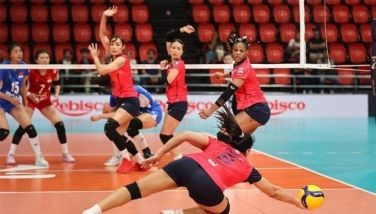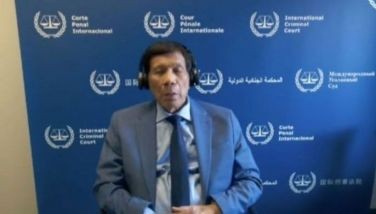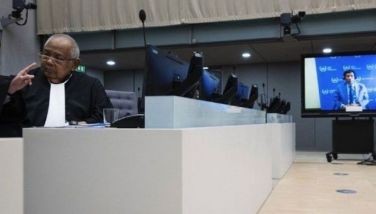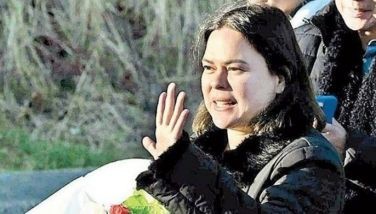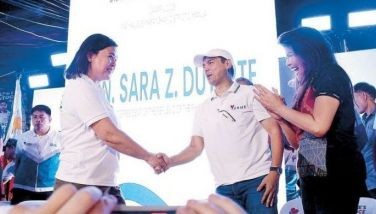Door still open for EASL

The invitation for the PBA to join the EASL (East Asia Super League) was put on the back burner while there is still no clarity on when the new normal with a vaccine will kick in. The PBA Board of Governors took up the invitation in a meeting last week and decided to hold it in abeyance.
EASL has committed to stake $1 million of which $100,000 is immediately payable to hook up with the PBA. The fund is a kitty to stage six EASL home games involving two PBA teams over a five-month season. The PBA is given the option to host the games or not but whatever its decision, EASL will put up $1 million.
PBA commissioner Willie Marcial said the door remains open for a partnership with EASL but until the vaccine is widely available, the Board deferred discussion on the invitation. Besides, EASL has advised the PBA that without the vaccine, it won’t push through with the inaugural season in October. EASL’s format is home-and-away so international travel is essential although limited within the confines of Japan, South Korea, China and the Philippines. EASL CEO Matt Beyer said creating a bubble for the games isn’t an option because it would defeat the purpose of staging a home-and-away series to build a wide fan base.
Marcial said aside from the vaccine issue, the Board has concerns about the conflict of schedule and the use of two imports in EASL. Beyer, however, said the issues could be sorted out with consultation and flexibility on both sides. There is an existing PBA rule that allows teams to play in an “outside” tournament only when there is a break in the league like when San Miguel Beer, TNT and Blackwater participated in EASL’s Terrific 12 preseason competition in Macau in 2019. Marcial pointed out that if and when EASL gets off the ground in October, the PBA will have started its third conference. Regarding the issue of two imports, Marcial said PBA teams are limited to a single import in the Governors Cup so adding another import to be competitive in EASL may be difficult since it would mean maintaining a second foreign recruit to play only six games over a five-month period.
Beyer said he’s aware of the PBA’s concerns and EASL is ready to address the issues without putting the PBA’s participation at risk. Beyer’s been involved in negotiating agreements with the Chinese, Japanese and Korean leagues so he’s used to solving problems of this nature. The PBA’s participation is key to EASL’s progress, meaning Beyer will do what he can to facilitate a smooth partnership.
After the PBA Board decided to table EASL’s invitation, Beyer issued this statement: “The PBA decided to pause EASL planning discussions until there is more clarity on distribution of the vaccine in the country. EASL supports the Philippines battle against the virus and looks forward to continuing in good faith discussions with the PBA.” Beyer said EASL is 100 percent behind the PBA in prioritizing the athletes’ safety.
Beyer said FIBA’s endorsement of EASL was critical because of the coordination in ensuring no conflict in schedule with the qualifying windows for either the Asia Cup or the World Cup. He took at least 20 trips spanning four years to confer with FIBA officials in Switzerland before a 10-year agreement was finalized. FIBA also opened up the possibility of a five-year extension. Beyer is often in contact with FIBA secretary-general Andreas Zagklis and national federations/sport director Zoran Radovic on matters related to Asian basketball.
While the vaccine roll-out is being awaited, EASL has concluded discussions with the Japanese and Korean leagues to join. “We’re hoping to start our season in October so we’re now doing promotions while we wait for developments regarding the vaccine,” Beyer said. EASL is currently negotiating with league and team representatives in Mainland China, Hong Kong, Macau and Chinese-Taipei regarding the best approach for two Greater China teams.
- Latest
- Trending



















